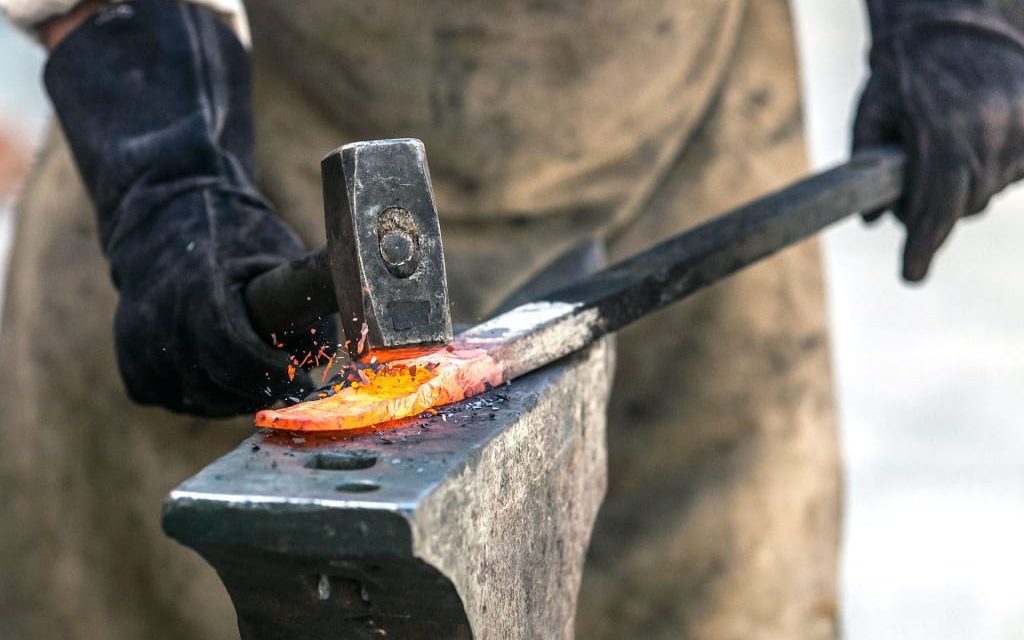I grew up watching This Old House with my Dad. I actually couldn’t care less (then and now) about nuances of carpentry or dovetailed joints, but I loved spending time with my Dad, and the information proved invaluable when working at Home Depot and smugly telling a pretentious lumber associate that OSB stood for Oriented Strand Board.
The other valuable thing I learned while watching carpentry shows with my Dad was the need for the right tools–and the many uses for those tools. I learned about the basics like socket wrenches. I was amazed at the power of a radial arm saw, or the beautiful application of a lathe.
Recently during a Sunday morning sermon, Mr. Higgins asked parents, “What do you want your children to be?” In light of your child’s education, as you round the final proverbial lap with your eighteen-year-old shaking Mr. Sarr’s hand and clutching an ECS diploma, what type of soul do you want to see?
As parents and educators for both young women and men alike, we need to establish–perhaps simply daily remind ourselves–of the foundational goal of classical education. It is not to get a good job, get good grades, make good money, or even change the world. It is not geared to boys more than girls; the intellectually gifted nor the intellectually different. The end construction project all these tools are aiming at – what we want our students to be–are worshippers who glorify God. We desire to aid young people in their love, devotion, adoration, service, and delight in the triune, magnificent Almighty. Every algebra equation should be a small peg upon which to hang their wonder of fractals and bodily chemical equations and reactions–every diagrammed sentence a tiny glimpse of the Word that spins spider webs every day and the intricacy of language and relationships–every music class a mini-study of three-in-one, diversity in unity, the necessity for major and minor chords in all things. The main point of classical education for parents, educators, and administrators is the carpenter him or herself: a full-bodied, fully-equipped, fully individualized sub-creator.
But this formative process is hard, and really, you have to believe that Latin actually does influence you as a worshipper of God–otherwise, why are you here? Why are you running the marathon? As your son or daughter stands with their metaphorical tool bag before you, see the future carpenter first. See how education shapes and strengthens the hands, heart, mind, and soul. See that education is about virtue and character.
Then, look at the tools themselves. At ECS, we are trying to give your student a huge variety of tools; each young man or woman will use those tools differently. You have to trust that reading Plato equips a student for engineering and for mothering equally. The application will vary wildly, but as your student reads hard books from Kindergarten to 12th grade, educators are placing a powerful tool in the child’s bag. Let’s say it’s a hammer. Basic. Essential. Wildly useful. Your 12th-grade son graduates and goes on to an Ivy League university where he seeks to become a biologist. He encounters evolution in his survey class and all of a sudden he pulls out the hammer and uses it for an application he hasn’t before: when the professor states Darwin introduced the evolutionary theory, the student asks about the influence of Socrates on Darwin. Bang.
Your daughter graduates from a great school gets a job and then marries at twenty. Though she and her husband weren’t planning to have children right away, just nine months later, at the age of twenty-one, they are blessed with a glorious little soul. This soul begins growing, and one day in the wake of the child’s uncle dying, late at bedtime (when children become profound philosophers), he asks about heaven. He is scared of death, and Heaven is just some nebulous cloud in the sky. The young mother, rocking her child, begins to tell him of a real-world, where everything is solid, where there are un-fallen forms of strawberries and grass so real it would hurt your feet now to step on it. She asks, “Will you help me pick real strawberries and make a real pie in heaven? All this, dear son, is but shadows–heaven is the reality.” Bang.
So thank you for trusting us to help teach your child the difference between a Phillips-head and a slotted screwdriver; thank you for helping bind up paper cuts and nurse weary muscles; thank you for dealing with the sawdust of intellectual fallout and the splinters of irritating math equations. Thank you for seeing that the carpenter and the carpentry are worth it because we are part of the far bigger building of an infinitely good Builder.
Leila Bowers, is a teacher at Evangel Classical School, Marysville, Washington.










